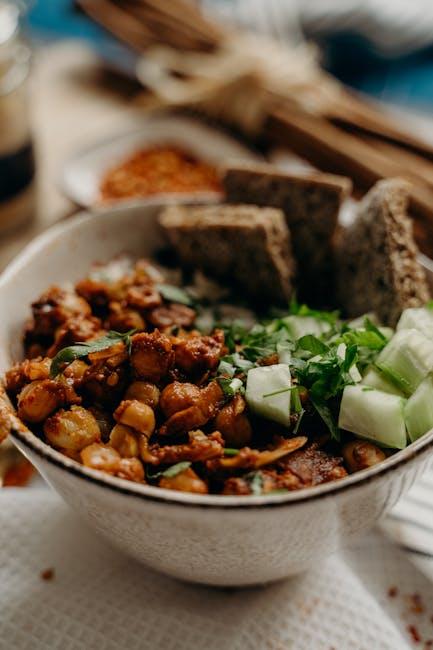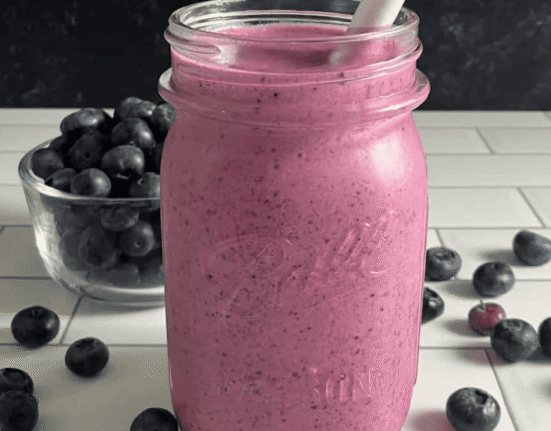In the intricate world of our body, the gut quietly plays a starring role—impacting everything from digestion to mood. Yet, amid our busy lives, we often overlook the simple rituals that nurture this essential system. Embracing straightforward, mindful self-care habits can transform gut health, paving the way for enhanced vitality and well-being. This article explores easy, accessible steps to cultivate a healthier gut, proving that sometimes, the simplest changes yield the most profound benefits.
Table of Contents
- Understanding Your Gut Microbiome and Its Role in Health
- Incorporating Fiber-Rich Foods for Optimal Digestion
- The Power of Hydration in Supporting Gut Function
- Mindful Eating Practices to Soothe and Strengthen Your Gut
- Gentle Activities and Stress Management for Gut Wellness
- Q&A
- The Way Forward

Understanding Your Gut Microbiome and Its Role in Health
Your gut microbiome is an intricate community of trillions of microorganisms living inside your digestive tract, playing a crucial role in your overall health. These tiny inhabitants help break down food, produce vital nutrients, and support your immune system. When balanced, they can enhance digestion, regulate mood, and even influence weight management. However, disruptions caused by poor diet, stress, or antibiotics can lead to imbalances known as dysbiosis, potentially triggering inflammation and digestive discomfort.
Maintaining a flourishing gut ecosystem doesn’t have to be complicated. Simple lifestyle habits can foster the growth of beneficial bacteria and promote harmony within your digestive system. Focus on:
- Eating fiber-rich foods such as fruits, vegetables, legumes, and whole grains.
- Including fermented foods like yogurt, kimchi, and sauerkraut to introduce probiotics naturally.
- Limiting processed sugars and artificial sweeteners, which may disrupt microbial balance.
- Managing stress through mindfulness techniques, as stress hormones can negatively impact gut flora.
- Staying hydrated to support digestion and nutrient absorption.
| Gut Microbiome Boosters | Examples |
|---|---|
| Prebiotic Fiber | Garlic, Onions, Bananas |
| Probiotics | Yogurt, Kefir, Miso |
| Polyphenols | Green Tea, Berries, Dark Chocolate |

Incorporating Fiber-Rich Foods for Optimal Digestion
Embracing a diet packed with fiber-rich foods is a gentle yet effective way to nurture your digestive system. Fiber acts like a natural broom, sweeping through your intestines to keep everything moving smoothly and prevent uncomfortable bloating or constipation. Incorporating a variety of fruits, vegetables, whole grains, and legumes not only boosts your fiber intake but also supports a thriving community of beneficial gut bacteria, enhancing nutrient absorption and overall gut health. Think of fiber as your digestive system’s best friend, helping it stay happy and balanced every day.
To make this shift simple and sustainable, consider adding these fiber-rich staples to your meals:
- Chia seeds and flaxseeds for a crunchy boost
- Legumes like lentils and black beans for protein and fiber
- Whole grains such as quinoa, barley, and oats for sustained energy
- Cruciferous vegetables including broccoli and Brussels sprouts for added bulk and antioxidants
| Food Group | Example Foods | Fiber Content (per 100g) |
|---|---|---|
| Seeds | Chia, Flaxseed | 27g – 30g |
| Legumes | Lentils, Black Beans | 7g – 8g |
| Whole Grains | Quinoa, Barley, Oats | 6g – 10g |
| Vegetables | Broccoli, Brussels Sprouts | 3g – 4g |

The Power of Hydration in Supporting Gut Function
Water acts as the unsung hero in your digestive system, facilitating the smooth breakdown and absorption of nutrients. Maintaining optimal hydration levels ensures that enzymes and digestive juices can effectively dismantle food particles, reducing the risk of constipation and promoting regular bowel movements. When you hydrate consistently, your gut lining remains well-moisturized, supporting a robust barrier against harmful pathogens and fostering a thriving community of beneficial bacteria.
In addition to drinking water, incorporating hydrating foods can enhance your gut health. Consider adding:
- Cucumber: Over 95% water, refreshing and gentle on the stomach.
- Watermelon: Packed with water and antioxidants that support gut immunity.
- Leafy Greens: Contain high water content plus fiber for digestive ease.
| Hydration Source | Water Content (%) | Gut Benefit |
|---|---|---|
| Water | 100 | Supports enzymatic digestion |
| Cucumber | 95 | Soothes and hydrates intestinal lining |
| Watermelon | 92 | Antioxidant boost for gut health |

Mindful Eating Practices to Soothe and Strengthen Your Gut
Embracing a mindful approach to eating transforms mealtime into a calming ritual that nurtures your digestive system. Begin by eliminating distractions: turn off screens, and focus on the flavors, textures, and aromas of your food. Chewing slowly and thoroughly not only enhances nutrient absorption but also sends signals to your gut to prepare for digestion, reducing bloating and discomfort. Prioritizing presence at the table can soothe your gut by supporting natural digestive rhythms and fostering a deeper connection with your body’s needs.
Creating awareness around your eating habits also involves tuning into your body’s hunger and fullness cues. Instead of eating to finish your plate or out of boredom, pause and ask if you are truly hungry. Consider incorporating these mindful techniques into your daily routine:
- Take three deep breaths before starting your meal to center your focus.
- Notice the physical sensation of hunger and satiety throughout the meal.
- Opt for smaller portions to better regulate intake and prevent overeating.
- Express gratitude for the nourishment in front of you, creating a positive mealtime atmosphere.
| Mindful Action | Benefit to Gut |
|---|---|
| Chew slowly | Improved digestion, less bloating |
| Eat without screens | Better nutrient absorption |
| Listen to hunger cues | Prevents overeating |
| Pause between bites | Enhances fullness recognition |

Gentle Activities and Stress Management for Gut Wellness
Embracing gentle, mindful practices can significantly enhance your digestive health by soothing your nervous system and creating balance within the gut-brain axis. Activities such as deep breathing exercises,
Incorporating simple stress-reduction techniques into your daily routine can have profound effects on your gut wellness. Consider adopting habits such as:
- Practicing mindfulness meditation for 5-10 minutes each day
- Engaging in progressive muscle relaxation before bedtime
- Listening to soothing music or nature sounds
- Spending time in nature to reset your internal balance
To help you visualize the benefits, here’s a quick look at how stress management impacts your gut health:
| Stress Reduction Technique | Gut Health Benefit | Time Commitment |
|---|---|---|
| Deep Breathing | Reduces inflammation | 2-5 minutes |
| Yoga | Improves digestion | 10-20 minutes |
| Mindfulness Meditation | Balances gut microbiota | 5-10 minutes |
| Nature Walks | Enhances mood and digestion | 15-30 minutes |
Q&A
Q&A: Simple Self-Care for a Healthier Gut
Q1: Why should I care about my gut health?
A1: Your gut isn’t just about digestion—it’s a bustling hub for your immune system, mood regulation, and even energy levels. A happy gut often means a happier, healthier you.
Q2: What are some easy steps I can take to improve my gut health?
A2: Start small with simple habits like drinking plenty of water, eating fiber-rich foods, and incorporating fermented foods like yogurt or kimchi. These nourish your gut bacteria and keep things running smoothly.
Q3: How does fiber help my gut?
A3: Fiber acts like a broom, sweeping through your digestive tract to keep things moving, prevent constipation, and feed the good bacteria that help maintain a balanced gut ecosystem.
Q4: Are probiotics necessary for gut health?
A4: Probiotics, found in fermented foods or supplements, can boost the population of beneficial bacteria. While not essential for everyone, they can be a helpful addition, especially after antibiotics or digestive disturbances.
Q5: Can stress affect my gut?
A5: Absolutely. The gut and brain are connected through the gut-brain axis, meaning stress can disrupt digestion, cause discomfort, and alter gut bacteria balance. Practices like meditation and mindful breathing support gut wellness.
Q6: How important is sleep for gut health?
A6: Sleep is crucial. Poor sleep patterns can throw your gut’s rhythm out of sync, impacting digestion and microbiome diversity. Aim for 7-9 hours of quality rest to support your gut’s natural cycles.
Q7: Should I avoid certain foods for a healthier gut?
A7: Highly processed foods, excessive sugar, and artificial sweeteners may harm your gut bacteria. Moderation is key—opt for whole, minimally processed foods to nurture your gut flora.
Q8: Is hydration really that important?
A8: Yes! Water helps dissolve nutrients and fiber, facilitating smoother digestion and preventing constipation. Staying well-hydrated creates an optimal environment for gut bacteria to thrive.
Q9: Can exercise help my gut?
A9: Regular physical activity promotes healthy bowel movements and can enhance the diversity of your gut microbes. Even daily walks or gentle yoga can make a positive difference.
Q10: How do I know if my gut needs extra care?
A10: Persistent bloating, irregular bowel habits, or digestive discomfort might suggest your gut needs attention. If symptoms persist, consulting a healthcare professional is a smart move.
Embracing these simple self-care habits can transform your gut health, creating a foundation for overall well-being—one mindful step at a time.
The Way Forward
Embracing simple self-care habits for your gut isn’t just about what you eat—it’s about tuning in to your body’s subtle signals and honoring its needs day by day. By making mindful choices and cultivating gentle routines, you create a foundation where your digestive health can flourish naturally. After all, a healthier gut isn’t a destination but a continuous journey, one that invites patience, curiosity, and a little kindness to yourself along the way. Here’s to nurturing your inner ecosystem with care that feels as good as it does good.














Leave feedback about this